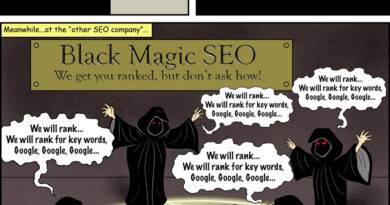How to Define Your Target Market
One of the most commonly overlooked things when you start your first home based business is knowing how to define your target market. But it’s one of the most essential elements for any form of business marketing success.
Answer the following three questions for me:
- Who specifically are you selling to?
- How well do you know them?
- What problem are you solving for your clients?
Were you able to answer these questions immediately? If not, then keep reading. Knowing your target market – your customers and clients – is essential to the long-term success and profitability of any business.
Identifying the Target Market for your Home Based Business
You can’t market to someone if you don’t know precisely what they need. You can’t sell to someone if they don’t need or want your product. Your advertising won’t reach your customers if you don’t know what they read and watch, or where they hang out online and off.
Your marketing can be like throwing mud at a wall – you throw a heap in the general direction and hope some of it sticks. Or you can know exactly where you’re aiming and direct your efforts there with laser like efficiency. I know which one I prefer.
How do you describe your Target Market?
So what do I mean by describe your Target Market?
I’d like you to describe for me your ideal client for your home based business, in as much detail as possible. Who buys your products?
Are they male or female? Teenagers, Adults, older people, singles, married, parents or grandparents?
Are they in one geographical location such as a particular city, anywhere in your country or worldwide?
What do they do? Are they in a particular career field, or related fields? Starting out in their career? Studying to further or change their careers? Retired? Entrepreneurs? Stay at home mums?
What is it about them that makes them Your Ideal Client? Are they in a particular sporting group, have a particular interest in common? At a particular stage of their life?
What problem do they have that your service or product solves?
Solving Specific Problems for your Target Market
I know I’ve said this in other posts, but it bears repeating again. Your products or services must solve a particular problem for your clients. If you’re not solving a problem that they have, then they don’t need you.
You can solve more than one problem for your clients, as long as the problems are related. For example, my ideal clients have one or more of the following problems:
- They don’t have a business plan and know they need one. The information available out there is confusing and contradictory so they come to me for clarity and direction.
- They want to move their hobby into being a business and need help with the goal-setting, strategising and steps involved.
- Their business is taking over their house and life and they need to bring some organisation and order back before the kids forget who they are.
- They’re too caught up in the day to day running of their business and can’t work out what’s next, what will help them break out of that and then grow their business.
These issues are all related, they’re all about working at home. However, I doubt I would have one client who had all these problems – or at least not all at the same time!
Focusing Your Solution for your Ideal Client
Once you are able to describe your ideal client and their problem/s, you need to look at where they are. Where and how can you reach them? Do they read a particular type of magazine? Inhabit a group of online forums? Read blogs? Industry magazines? Shop in certain locations or shops? Are they predominantly online or offline?
The narrower you can focus your niche – the problems that you solve for your clients – and the more detailed you can describe your ideal client, the better you can serve them.
The better you can direct your publicity and advertising to those who need your products and services, the better your conversion rates.
The better your conversion rates – the higher your profits and the better your bottom line looks.

Liz Raad is a successful online entrepreneur and educator who’s expertise is buying and selling websites and teaching women how to do the same. She is also the co-founder of the eBusiness Institute Australia, a private training organisation that provides digital marketing courses designed specifically for those who want to re-train for the digital future or earn income independently.





Thanks Samar, 🙂 Identifying your target market is such a key step, and yet it’s something that most people don’t do. It can be really hard to do it thoroughly.
You’ve been writing some excellent posts these past few weeks! I love the direction your blog is taking.
Target market once identified can make life so much easier. Yet its one of the things we fail to do in a business. By accomodating everyone and trying to get the most business, we forget that we’ll increase our conversions with more focus.
Needless to say, I need to do this too. Sometimes I don’t know how I’m working for myself!